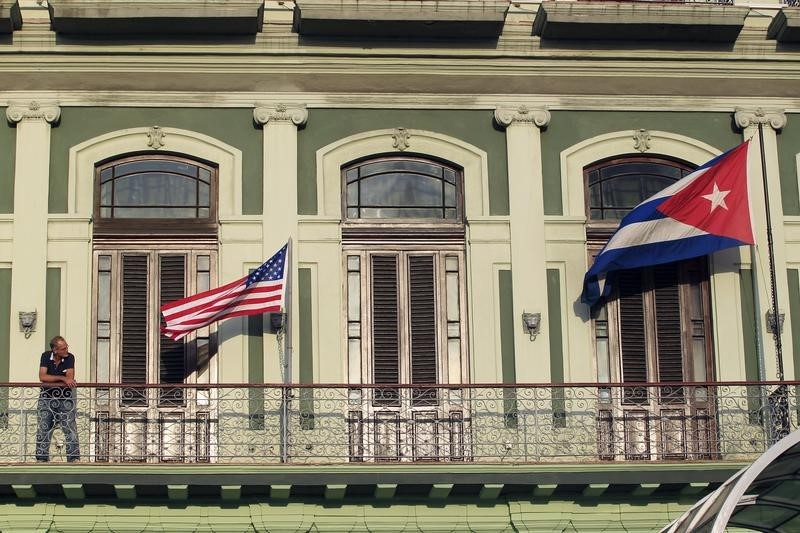(Reuters) - A poll of Cuban-Americans shows support for the White House's new Cuba policy has risen in the three months since it was announced, with 51 percent now in favor of closer engagement with Cuba, up from 44 percent in December.
The poll by consulting firm Bendixen & Amandi International, and released in New York on Wednesday, sampled 400 people across the country's population of approximately 2 million Cuban-Americans, mostly concentrated in Florida and New Jersey.
Forty percent of those polled said they disagreed with the new policy.
The White House policy change announced Dec. 17 includes plans to restore diplomatic relations with Cuba after 54 years, relax travel restrictions for Americans seeking to visit the island and increase commercial ties, while leaving intact the U.S. embargo against the island.
"In the three months since President Obama's historic announcement, rather than increasing opposition, the study reveals there is now slight majority support amongst Cuban-Americans for normalization of relations with Cuba," said Fernand Amandi, of Bendixen & Amandi International, a Miami firm which did work for both Obama's presidential campaigns.
Support among Cuban-Americans living outside Florida's exile enclave was highest, while older Cuban-Americans born on the island were more likely to oppose the thaw with Washington's longtime Cold War foe.
Fifty-four percent of Cuban-Americans over 65 said they were opposed and 38 percent in favor. But a large majority, 69 percent, of those aged 18 to 29 were in favor, and only 20 per cent against.
Forty-nine percent of Cuban-Americans living in Florida said they disagreed with the effort to normalize relations, while 41 percent said they agreed. However, 69 percent of Cuban-Americans living outside Florida agreed with the new policy.
There was also strong support for the new policy allowing Americans to provide funding for independent businesses owned and operated by Cubans on the island.

The poll was released in New York at a Cuba Opportunity Summit, sponsored by the University of Pennsylvania's Wharton School of business. It has a margin of error of plus or minus 4.9 points.